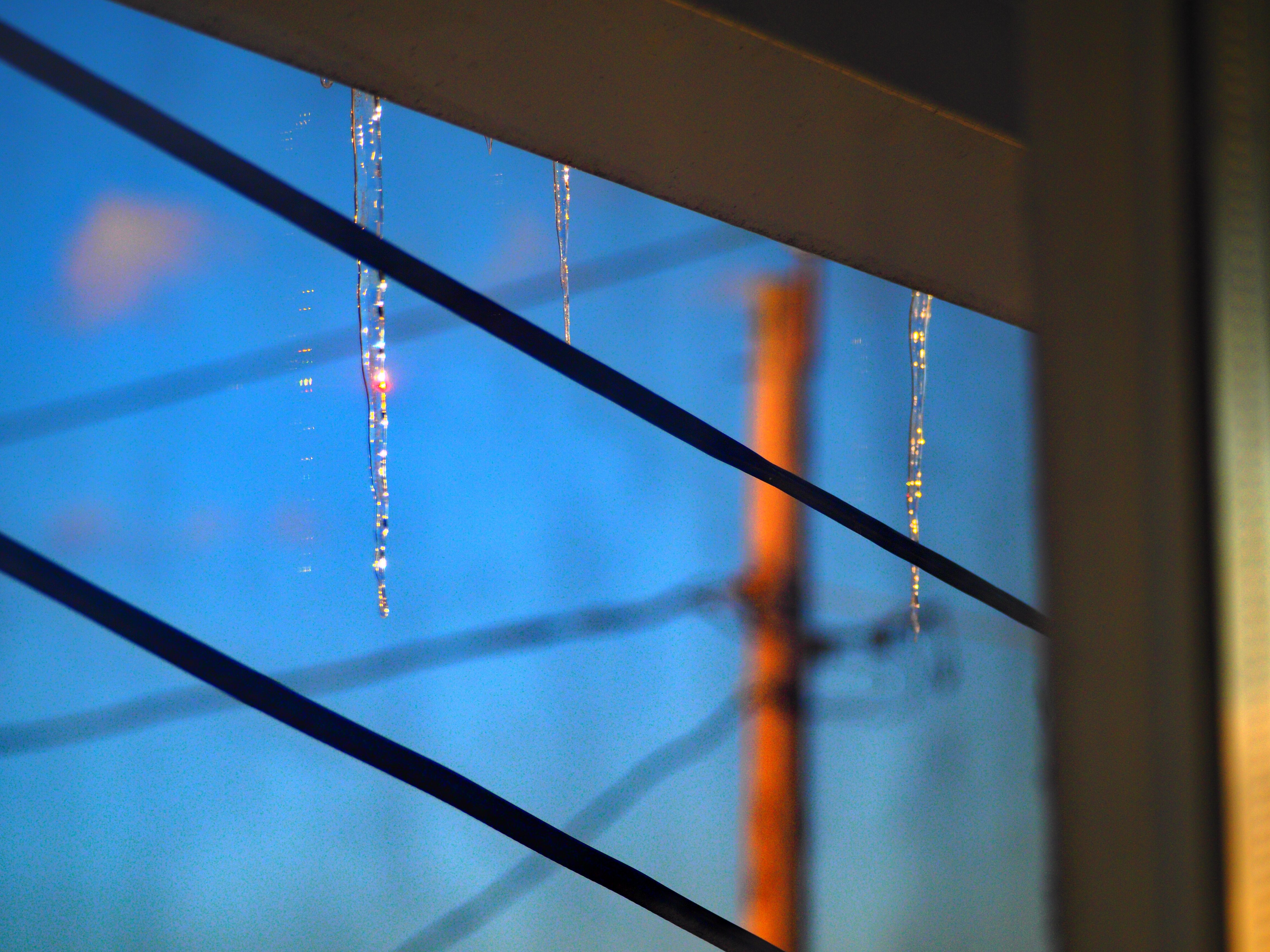-
Posts
44,789 -
Joined
Content Type
Profiles
Blogs
Forums
American Weather
Media Demo
Store
Gallery
Everything posted by LibertyBell
-
Thanks Chris-- it's crazy to think about, but even with how horrible that period was, the last 2 years have been an order of magnitude worse than ANY of those years. There was only one season in that set that had less than a foot of snow and even that season had nearly twice the amount of snowfall of the last two years combined!
-

Occasional Thoughts on Climate Change
LibertyBell replied to donsutherland1's topic in Climate Change
I have always believed that the planet has these kill switches tipping points built in as a natural check on out of control population growth (by any species really.) Think about it this way-- if natural kill switches didn't exist would we be here today? Probably not. If natural kill switches didn't exist would life even be sustainable long term on the planet without existing creatures consuming all the natural resources the planet has? Probably not. Finally, and here is something truly amazing. The fastest rates of evolution happen right after a mass extinction event, as nature and the planet seek to fill in the niches that have been left empty. In a near miraculous rate of evolution it has been conclusively proven that it took no more than 100,000 years (not even a million!) for rapidly evolving mammals to fill every niche left empty by the extinct dinosaurs. Not only that, but the key to their success was flowering plants, which also rapidly evolved after the K-T event. And these flowering plants provided the highly nutritious nuts that the mammals needed to develop complex brains that also rapidly evolved and eventually lead to us. All of nature and the planet is beautifully connected. Even plants are much smarter than we think they are, the trees of the Amazon regulate their own rainfall and entire forests and fungi communicate and network and work together to preserve the whole. The resiliency of nature is truly astounding and you can see glimpses of the grand plan not only in how it bounces back from mass extinction events but also how the planet self regulates to prevent any one species from becoming too dominant and using up all the planet's natural resources. This is the Gaia Theory in action! -
It's why Mahomes can never be the GOAT though. Head to head Brady will always be 2-0, and at the tail end of his career too.
-
NYC has never averaged less than 20 inches per year per decade (rounded to the nearest inch) in its entire recorded history has it, Chris? Also let's keep in mind our totals now are a bit inflated compared to prior to 2000 because of measurement technique changes. But perhaps this is balanced out by inconsistent measuring of snowfall at Central Park lol.
-

2/13 Significant/Major Winter Storm Discussion & Observations
LibertyBell replied to Northof78's topic in New York City Metro
Thanks Walt, MPO seems to be the place to be for this storm! -

2/13 Significant/Major Winter Storm Discussion & Observations
LibertyBell replied to Northof78's topic in New York City Metro
la ninas after el ninos tend to be really good -
I know we had something like this in New York in 1998 towards the end of March, but the one I remember the best is the epic warm stretch in mid March in 1990 when we wore tshirts and shorts to school lol. It came close to 90 degrees! But after this it got cold again and we had 1-2" of snow in early April. And all this was after an epically mild January and February (for back then anyway) which came after a historically cold and dry December which came after our biggest Thanksgiving snowstorm which came after one of our most destructive fall severe seasons on record. The period from October 1989 through April 1990 was about as extreme as you can get in terms of weather.
-

2/13 Significant/Major Winter Storm Discussion & Observations
LibertyBell replied to Northof78's topic in New York City Metro
I guess from JFK to NYC? I'll add in ABE and MPO JFK-2" NYC-4" ABE 8" MPO 12" Does this sound like a good estimate with the info we have right now? -
do you still think the pattern breaks down by the 24th or will the SSW keep it going to the end of the month or even first week of March?
-
when?
-

2/13 Significant/Major Winter Storm Discussion & Observations
LibertyBell replied to Northof78's topic in New York City Metro
Sounds like Presidents Day is our best bet. I'll be happy with 2 inches with this one. -

2/13 Significant/Major Winter Storm Discussion & Observations
LibertyBell replied to Northof78's topic in New York City Metro
Don what do you think here? The NBE is slowly increasing so maybe 2-4 is a nice call here to account for the Euro? -

2/13 Significant/Major Winter Storm Discussion & Observations
LibertyBell replied to Northof78's topic in New York City Metro
to be fair, I think he's only talking about the people on TV.... and he's right, they're not very good. -

2/13 Significant/Major Winter Storm Discussion & Observations
LibertyBell replied to Northof78's topic in New York City Metro
why don't we have a blocking high to the north-- wouldn't that be climo for early February? I also saw that the AO is negative, doesn't that mean there's blocking present? -
Okay so here's an idea, if it's the western parts of the oceans that are warming more rapidly maybe it's because the continents are warming more quickly and because the general air circulation pattern is west to east, it would cause the heat to transfer from the warming continents to the western part of the oceans first? But then we have to deal with the effects of upwelling.... This is complicated lol.
-
Okay so let's go with the idea that this is cyclic and we are going to see a repeat of the 70s through the 80s. But if this is cyclic then we should have seen something like the 70s through the 80s before. But we didn't-- those two decades (let's forget the 90s they were near normal snowfall wise, let's just stick with average snowfall)-- really stick out for being the lowest on record in the entire history of record keeping at Central Park. Pre 55 was pretty good for snowfall, certainly MUCH better than the 70s and 80s, we had some of our snowiest and coldest years in the 30s and 40s (and yes also some of our mildest in the 30s.) Now if we say it's a combo of cyclic AND climate change, then it makes more sense, because that would explain why the 70s and 80s were so much worse than the previous snowfall minimal decades. But that would also mean that what we're now entering will probably be worse than the 70s and 80s were.
-
I just saw that climate scientists are worried because about 40% of the jump in warmth this year can't be explained-- even after accounting for the strong el nino and the regular increase of 0.2C per decade. For some reason we saw a 25x increase in just one year.
-
Vampires live there.
-
it's nice to see the sun, cloudy and mild is what sucks, cloudy and cold too unless it snows.
-
no one has properly explained why the WPAC is so much warmer than the EPAC? what makes that part of the Pacific so different from the rest?
-
wow so the 1899 and 1934 arctic outbreaks happened on the same day? It looks like they came close to matching our all time historic winter in 1783-84 that we have talked about previously? it would be interesting to see national maps of the cold for all three of these arctic outbreaks (I'm sure a map can be made using the available data on 1784, 1899 and 1934 so we can compare the three?) It looks like the cold in 1784 extended for a much longer period of time (many months) than the other two? Were they all accompanied by big snowstorms? That is the difference between the arctic cold back then vs the big arctic shots in the 80s-- those were all cold and dry and on bare ground not snow covered ground. 1899: One of the most significant cold outbreaks to ever impact the United States occurred early to mid-February. From the 8th-11th, the statewide average temperature across Iowa was 14.6 degrees below zero, making it the coldest four-day stretch on record in the state. On the 8th, Sioux City experienced its coldest day on record, with a daily average temperature of 24 degrees below zero. Then on the 11th, they reached their second-coldest temperature on record with a low of minus 31. Overall the coldest readings were obtained on the morning of the 9th when reported low temperatures included -21 at Keokuk, -23 at Des Moines, -33 at New Hampton, -35 at Le Mars, -38 at Estherville, and -40 at Sibley. The cold across the middle of the country was so extreme and persistent that ice floes down the Mississippi River into the deep south, emerging into the Gulf of Mexico near New Orleans on February 17th. This has happened only one other time: February 13, 1784. The temperature dropped to 63 degrees below zero at Norway House, Manitoba, Canada setting the province's low-temperature record.
-

2/13 Significant/Major Winter Storm Discussion & Observations
LibertyBell replied to Northof78's topic in New York City Metro
I know but it seems like unstacked lows always seem to mix or change to rain on the south shore. There hasn't been an all snow 6"+ storm here since 2017 or 2018. -

2/13 Significant/Major Winter Storm Discussion & Observations
LibertyBell replied to Northof78's topic in New York City Metro
The most recent example we have of this is April 2, 2018. We don't need to get to 32.... but it needs to be 33-34 at least, 35-36 won't cut it for more than an inch or two (at the very most.) -

2/13 Significant/Major Winter Storm Discussion & Observations
LibertyBell replied to Northof78's topic in New York City Metro
I like the top one better, the bottom one seems to indicate more rain. -

Extended summer stormlover74 future snow hole banter thread 23
LibertyBell replied to BxEngine's topic in New York City Metro
Thanks, it's in my floppy disk collection around here somewhere. Back in the late 80s was when we first started using those 3.5" disks (I liked them a lot better than the larger 5.25" disks because they weren't as "floppy" and were a lot more durable and didn't have an exposed magnetic surface like the larger sized floppies do.)



